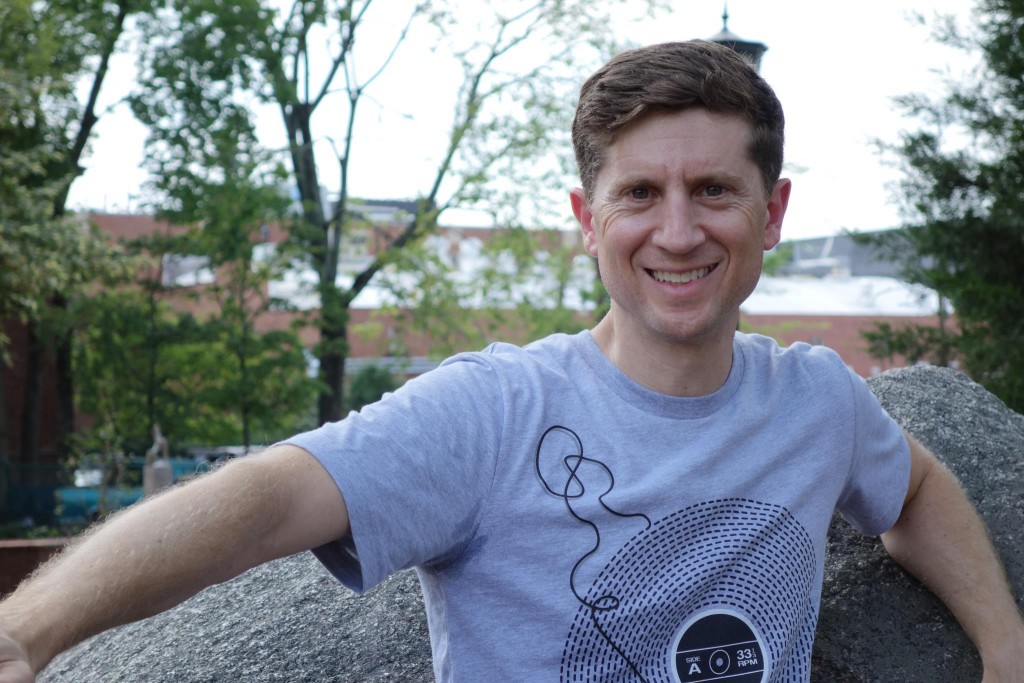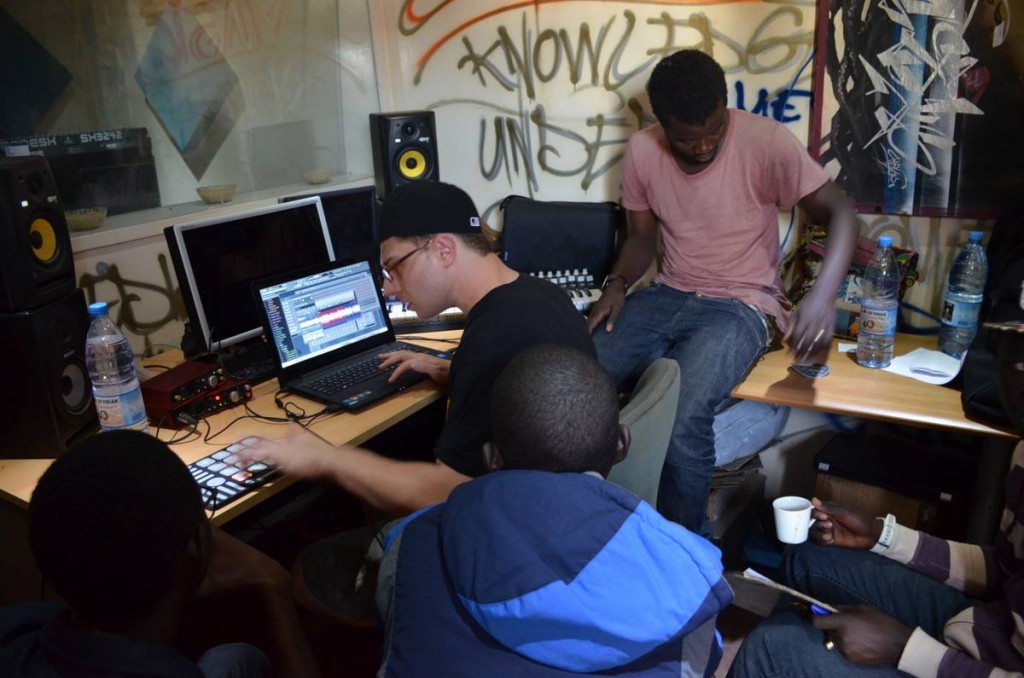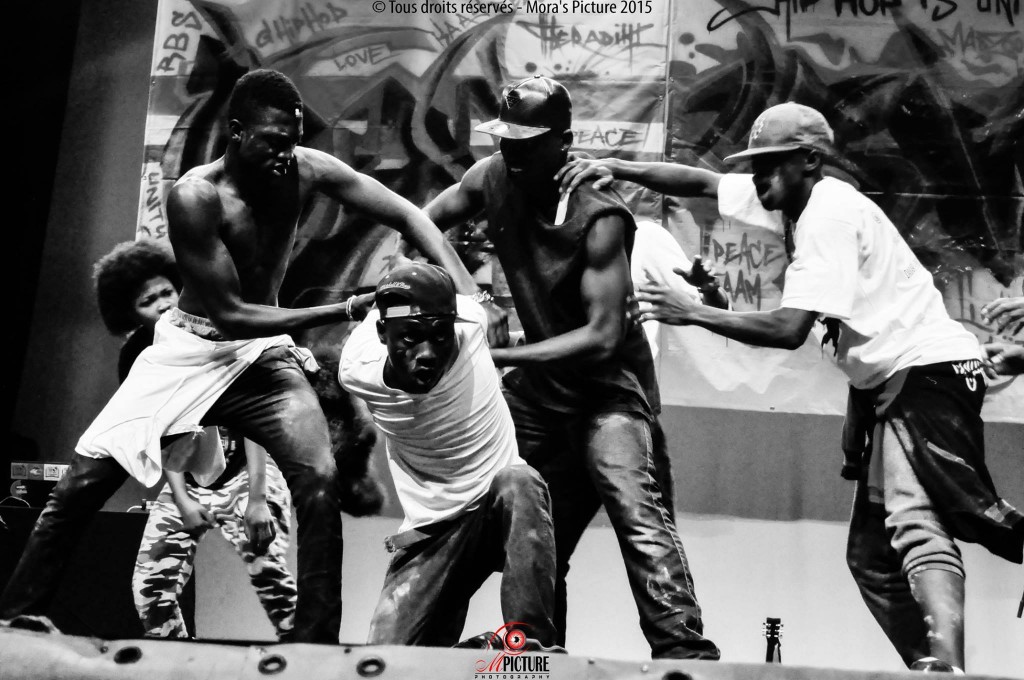 Mark Katz, présente Next Level
Mark Katz, présente Next Level
Mark Katz,
(un violoniste au service de la culture Hiphop.)
Présente le programme Next Level.
« J’ai rencontré Mark au Théâtre Daniel Sorano, la veille de la représentation du spectacle Next Level. Le programme d’échange et la mise en place du spectacle ont été organisés par le U.S. Department of State et l’ambassade des US aux Sénégal, en collaboration avec G Hip Hop, Africulturban, Sunnu Kadu, Kaay Feec et Rock Team music. Mark et les artistes Tony Blackman, Lauren Harkrader (DJ Chela, Junious Brickhouse, Elliot Gann supervisaient les répétitions aux cotés de Young, le coordinateur du projet. Je demandais à Mark un aparté pour répondre à mes questions. »
Qui es–tu ?
« Je m’appelle Mark Katz et je suis le directeur de Next Level, un programme initié par The Institute for the Arts and Humanities à l’Université de Caroline du Nord à Chapell Hill aux États Unis.»
« My name is Mark Katz and I am the director of next level, Next level is a program that is funded by the USA state Department and its ran by me and some other people at the university of North Carolina at Chapell Hill.»
Quel est le concept de ce programme ?
«Tout à commencé, il y’a des décennies, Les Etats Unis envoyaient des musiciens partout dans le monde et au Sénégal. Le Théâtre Daniel Sorano a d’ailleurs reçu Randy Weston et d’autres américains.
Next Level est un programme plus récent (2013) qui s’inscrit dans cette tradition d’envoyer la musique à l’étranger. Il a commencé par un processus de demande, le département d’Etat a lancé des appels pour créer ce programme.
Ils voulaient un programme qui envoi de la musique et de la danse urbaine dans le monde entier. J’ai postulé et j’ai créé le programme (Nom, Équipe etc.). En un an, nous sommes déjà allés dans quatre pays (Serbie, le Bangladesh, l’Inde, la Bosnie) et en février nous allons au Zimbabwe. »
« So the way this started is that the USA state has been sending musician all over the world and to senegal for decades such as Randy Weston and other american who performed in this theater (Sorano).
Next level is the newest program in that tradition of sending music abroad and this started in 2013. It started out through a application process the state department called for applications to create this program.
They wanted a program that would send urban music and dance around the world. i applied for it and created the program (The name, the team etc) and we’ve gone to 4 countries already ( Serbia, Bangladesh, India, Bosnia) and february we’re going to Zimbabwe it’s going to be the first year of the program. Since we’ve been renewed so we have one more year and we’ll be going to several more countries.
Quels sont les avantages pour les artistes américains ?
«Je leur ai demandé : Pourquoi vous voulez aller au Sénégal ? Ils ont réussi leur carrière et ils veulent donner en retour, enseigner aux autres. Tous sont des enseignants. C’était l’occasion de faire ce qu’ils aiment et d’être payé pour cela, d’aller dans un beau pays où il y’a une tradition musicale riche. Travailler avec de jeunes musiciens talentueux, c’est très excitant. Ca les aide à grandir en tant que musiciens.
C’est aussi une expérience personnelle enrichissante. Par exemple Junius Brickhouse notre danseur qu’il est un Afro-Américain et il n’était jamais venu ici mais ses ancêtres viennent d’Afrique de l’Ouest et ce voyage est très spécial pour lui. Il a pu aller sur la terre de ces ancêtres.
En outre, Next Level est une expérience professionnelle riche parce que les artistes établissent des liens avec d’autres artistes. Par exemple Elliot notre beatmaker a commencé à collaborer avec un beatmaker locale Ismaila Talla (814). Ils vont continuer à travailler ensemble, même après ce programme. Faire de nouvelles rencontres, de nouvelles amitiés, pour certains d’entres eux, c’est un rêve devenu réalité. Next Level n’est pas seulement un apport pour les américains et l’importation de la culture américaine, c’est un échange avec le pays qui accueille le programme.»
« I’ve asked them that and i said why do you want to go to senegal. They benefit many ways many of the like to give back , they have been successful in their careers and they feel that they want to give back they want to teach others all of them are teachers they love to teach so this is an opportunity to do what they love, get paid for it, to go to a beautiful country where there is a rich musical tradition and work with very exciting talented young musicians it helps them grow as musicians.
They also want the personnal experience for exemple Junius Brickhouse our dancer he is an african american and he has never been here before but his ancesters came from West Africa and this is very spécial to him to be able to go to the land where his ancesters were born.
Also it offers them professional experience they make connections with other artists. For exemple elliot our beatmaker has started collaborating with a local beatmaker 814 they will continue to work together even after elliot goes home so they making new relationships new friendships for some of them its a dream come true so we always say next level is not just about american importing their music or our ideas but its an exchange. »
Comment choisissez-vous les intervenants ?
«Nous avons lancé un appel et nous avons eu 25 candidatures pour ce groupe. L’équipe qui s’est rendu au Sénégal n’est pas la même que celle qui était au Bangladesh. Les artistes que nous choisissions ne sont pas seulement musiciens mais ils sont aussi enseignants. Le programme voulait recruter des gens qui sont non seulement étaient excellents dans leurs domaines (MC, Danse, deejay, Beatmaking), mais aussi des gens qui avaient de l’expérience en tant qu’enseignants, et qui avaient une conscience sociale, qui se souciait du bien être des gens et de la communauté que nous voulions représenter. Nous voulions représenter le HIP HOP des États Unis et nous connecter avec des personnes qui ont la même vision profonde et significative du Hiphop. Il y avait beaucoup de gens, mais nous avons choisi les meilleurs.
L’objectif est d’amener les gens de différentes cultures dans le hip hop et faire de ce monde un endroit plus pacifique, en les reliant à travers ce que nous appelons la diplomatie culturelle ou encore mieux la Hiphop diplomatie. Nous ne sommes pas à Dakar pour apporter le hip hop ici. Il est déjà présent au Sénégal et possède sa propre tradition. »
« We put out a call for application we had 25 spots for artists so this group of artist is only coming to Sénégal the bangladesh team was different.25 american artists we had 150 applications from many excellent artists educators thats how we call them because they’re not only musicians they’re also teachers so we ead their applications wanted to pick people who not only were excellent in their areas (Emceeing, Dance, deejay ,Beatmaking) but also had expérience as teachers and who had a social conscience who cared about the good of people who cared about community we wanted to reprensent.
The US we wanted to represent HIPHOP and who wanted to connect with people on a deep and meaningful way so there was many people but we picked the very best and thats how we chose them.
The goal is to bring people of of different cultures together through hip hop thats a way of making the world a more peaceful place by connecting them through music.Its what we call cultural diplomacy or even better hiphop diplomacy so the way i think of it is that we’re not bringing hip hop here its already here Dakar has one of the most well established hiphop tradition in the world so that is not the point.
Quels sont les ambitions de Next Level?
« Pour beaucoup de raisons, le département d’Etat veut que les gens au Sénégal aient une bonne opinion des Américains. Mon but est de faire comprendre aux gens que le hiphop n’est pas seulement ce qu’ils voient à la télévision, violent, sexiste matérialiste. Le hiphop est profond ainsi que sa culture donc j’aimerais que les gens le comprennent.
Next Level existe depuis un an et nous avons renouvelé le programme pour un an de plus. J’espère qu’il continuera pendant dix ans. Mon but si je regarde le futur, c’est qu’il y’ait une communauté hiphop beaucoup plus soudé, une où les gens de différents pays travailleront ensemble à travers Next Level, et que le monde soit relié par le hip-hop. L’idée est de rendre le monde meilleur grâce au hip hop et ne faire qu’un.»
« Many different reasons to do this the state department wants people in senegal to have good opinion of americans. My goal is to make people understand hiphop not just as the kind of hip hop they see on Tv which is sometimes violent, sexist, materialistic , that hip hop is profound its deep its a culture so i want people to understand it.
So in the long term Next Level has been existing for one year and we’ve been renewed for one more year i hope we’ll keep going for ten years but my goal if i look ten years into the future i would like to think that there is a much tighter hiphop community one where people rom different countries will work together through Next level and that the world becomes a global energ connected through hip hop. Its very gandiose with the idea of making the world a better place through hip hop and we’ll do that one person t the time, one country at the time.
Es-tu Hiphop ?
«Je ne suis pas un artiste de hip-hop, je suis violoniste et aussi un Dj. je suis venu au hiphop comme un chercheur. J’aime la musique, mais mon travail est celui d’un érudit. J’étudie la culture hip hop dans un sens, je suis un peu un outsider parce que je suis comme un anthropologue étudiant la culture de hip-hop. J’ai passé beaucoup de temps avec les artistes hiphop à voyager autour du monde. J’ai passé beaucoup d’années à faire cela, je sens que je suis appart, mais je ne veux pas le revendiquer… je ne suis pas comme Toni Blackman qui est 100% HipHop… Je ne veux pas dire que je ne m’intéresse pas à ce sujet, mais je vois les choses différemment parce que je suis un chercheur. J’ai écrit un livre sur les Dj hip hop et je travail sur un autre qui va parler de Next Level.
Je peux dire que je suis profondément engagé à la cause hiphop en tant que culture, celle qui favorise la paix, l’amour, l’unité et le fun, ce sont les mots de AfrikaBambata ; les fondateurs du hiphop. Je crois très profondément dans cette mission. »
« You know i am interested (Laughs) because i am not a hiphop artist i am a musician i actually play violon i am also a Dj i do a little bit but i came to hiphop as a scholar i also like the music but my work is as a scholar i study the culture of hip hop so in one sense i am kind of an outsider because i am like an anthropologist studying the culture of hiphop but i’ve spent so much time with hiphop artist traveling around the world i se its such a beautiful thing and i ‘ve spent many years doing this i do feel that i am appart of it too but i dont want to claim … im not like tony blackman whos is 100% HipHop….. i dont want to say that i dont care about it as much but i come at it differently because i am a scholar so i’v’ written books about the hip hop Dj i am going to write a book about Next Level so i will say that i am deeply commited to the goals of hiphop as a culture that promotes PEACE LOVE UNITY and HAVING FUN those were the words that africa bambata the founders of hiphop said many years ago he said thats what hiphop’s about and you see the Tshirts we have they have that on. I believe very deeply in that mission. »
Veux-tu ajouter quelque chose ?
«Je veux juste féliciter le Sénégal et Dakar. Vous savez que le Sénégal est connu comme un lieu d’hospitalité et nous en avons fait l’expérience dès le premier jour de notre arrivée, nous sommes très reconnaissant vis-à-vis des Dakarois de nous montrer ce qu’est l’hospitalité. je veux aussi dire que je ai énormément de respect pour les musiciens sénégalais, nous ne venons pas ici comme des gens supérieurs mais comme des partenaires et nous respectons le hiphop sénégalais et nous respectons aussi la culture africaine et la musique et tout ce qui se passe en elle, donc je veux juste dire combien j’apprécie l’hospitalité, le talent et la bonté des gens que nous avons rencontrés. »
« I just want to praise Senegal and praise Dakar you know that senegal is known as a place of hospitality and we’ve experienced it from the very day we came here we felt that and we are very reatful to the people of Dakar for showing us that hospitality i also want to say that i have enormous respect for the senegalese musicians we come here not as i said not as superior but as partners and we respect senegalese hiphop and we also respect african culture and music and everything that goes into it so i just want to say how much i appreciate the hospitality , the talent and the goodness of the people that we’ve met. »
About the Institute :
The Institute for the Arts and Humanities strengthens UNC’s commitment to the liberal arts by supporting and honoring UNC faculty’s innovative research, inspirational teaching and imaginative leadership.
The Institute for the Arts and Humanities helps UNC recruit, refresh, develop, and retain a world class faculty of teachers and scholars. The IAH provides resources to support faculty initiatives and a place for enriching intellectual exchanges. Our two core programs—the Faculty Fellows Program and the Ruel W. Tyson Jr. Academic Leadership Programs—highlight our collegial model, with faculty developing their talents and goals through interaction with colleagues. Our ancillary activities respond to emerging trends in various academic fields, to issues of concern to the UNC community, and to promoting the spirit of the liberal arts more generally. The IAH aspires to be light on its feet, alert to innovative ideas and practices, and responding quickly to opportunities to further the work of the arts and humanities as understood and practiced by UNC faculty. Finally—and crucially—the IAH serves as a bridge between the faculty and UNC alumni and donors, providing occasions for interchanges among these groups, and garnering philanthropic support for the faculty’s pedagogical and scholarly projects.









merci pour cet article grandement complet.